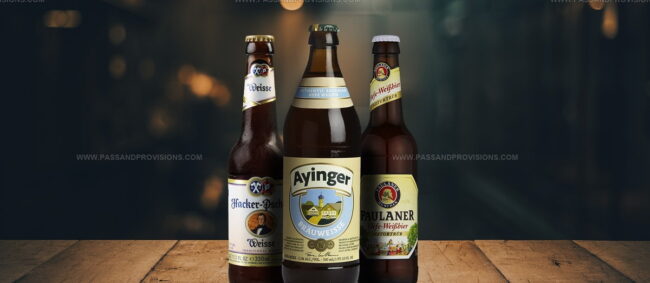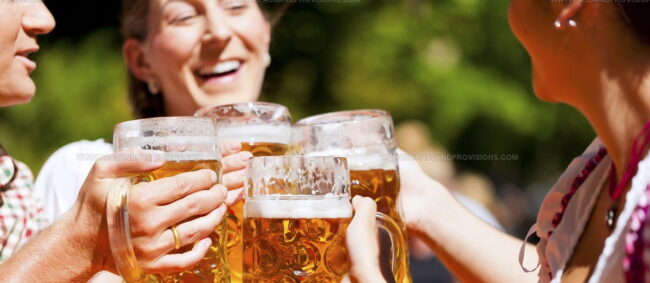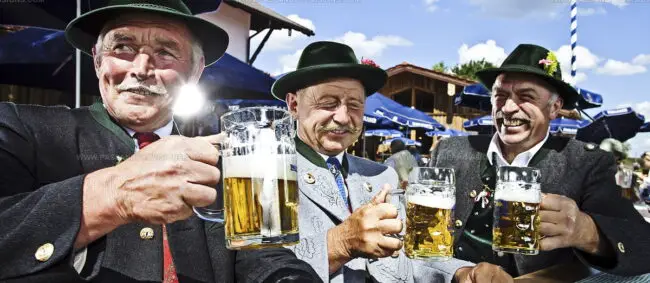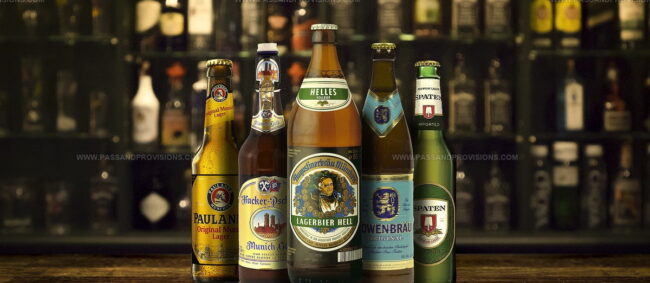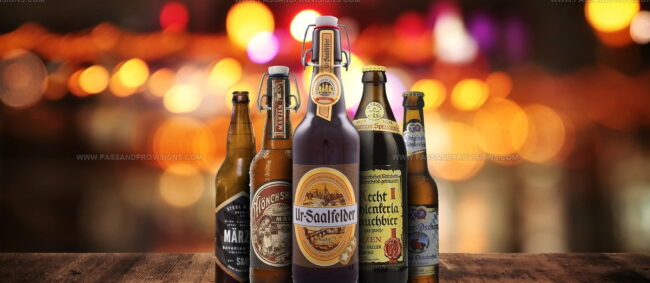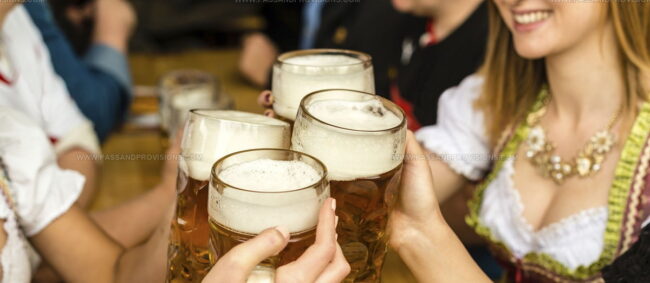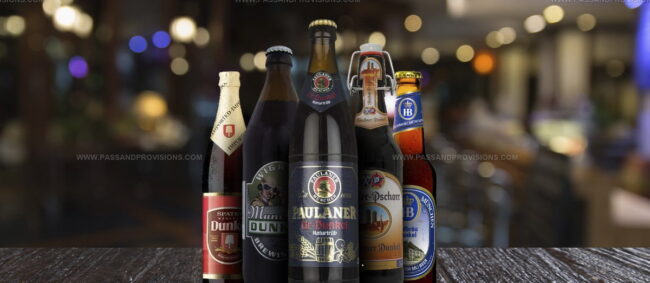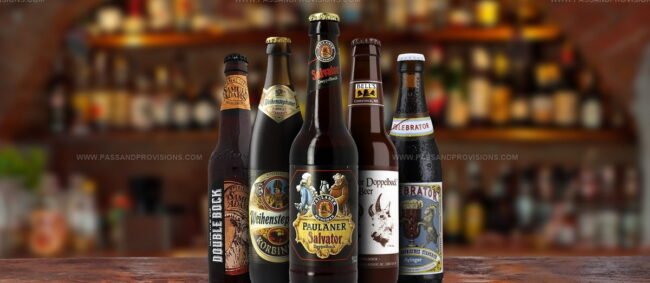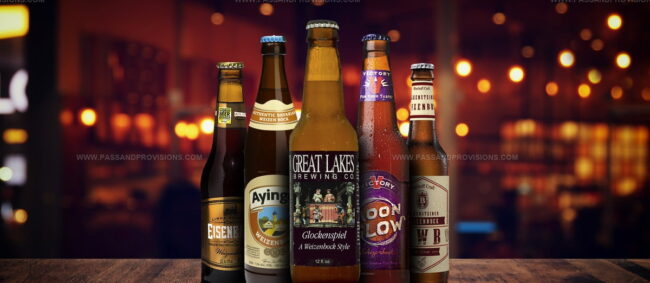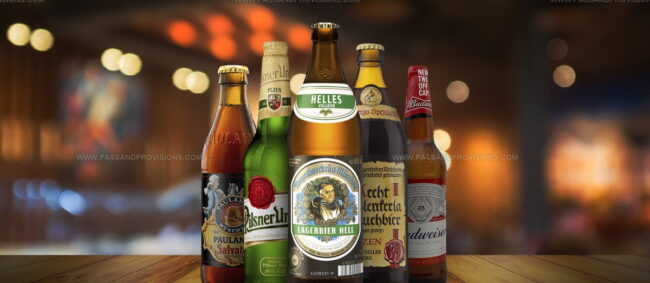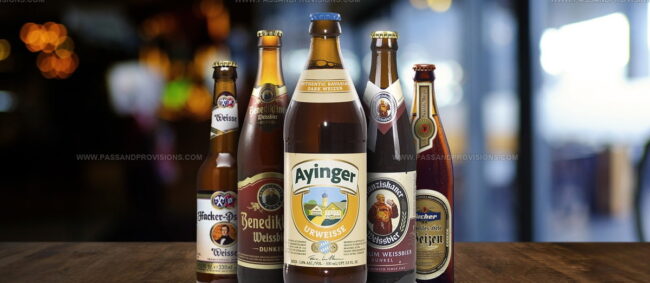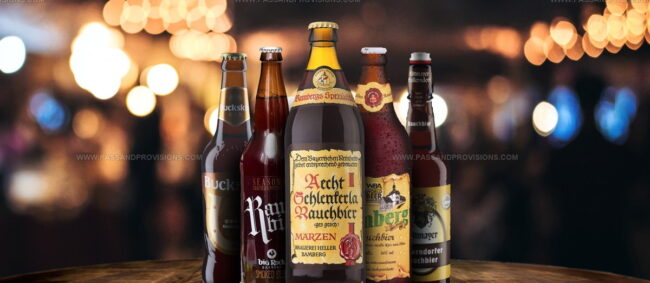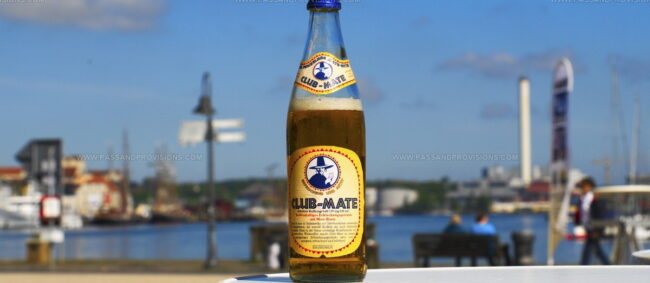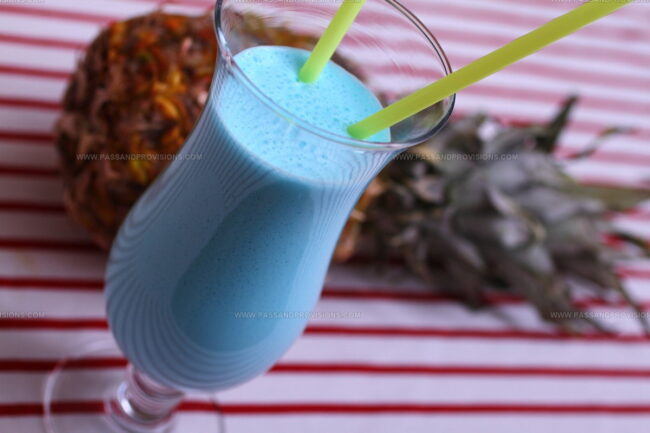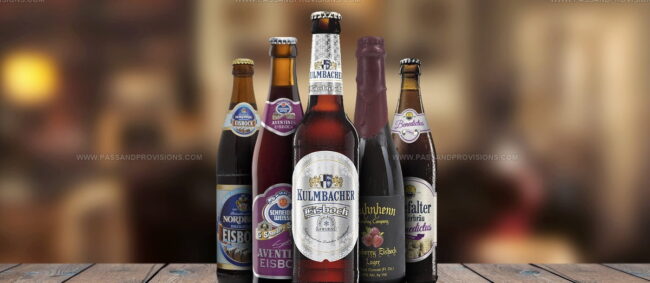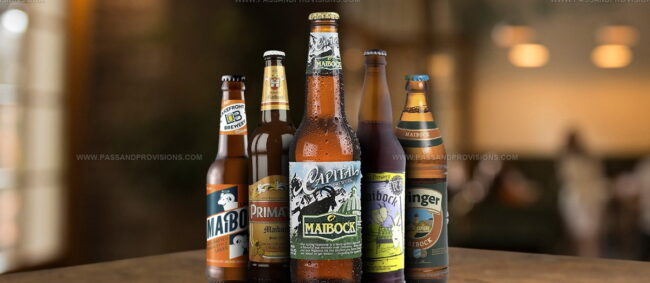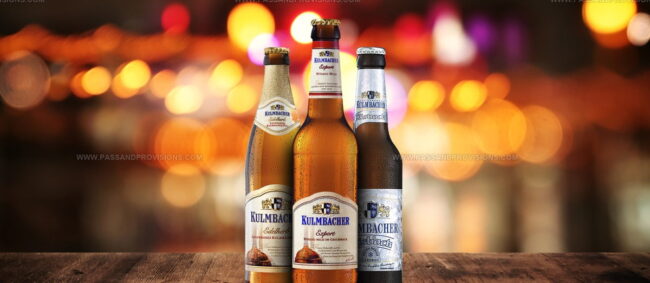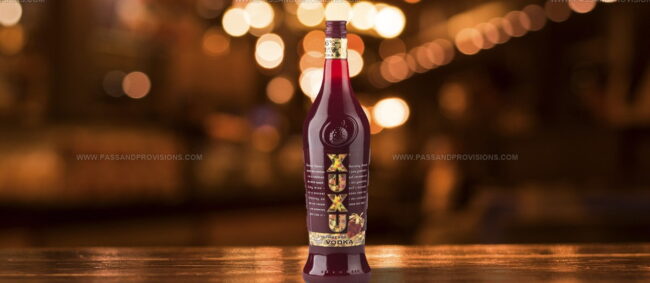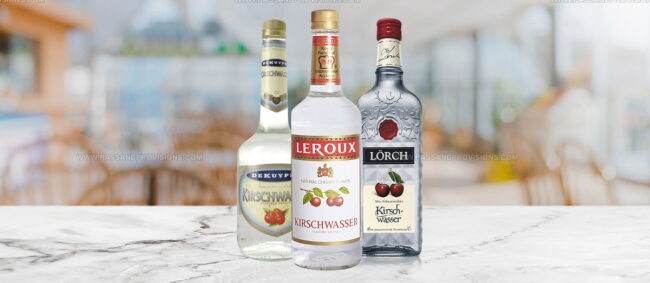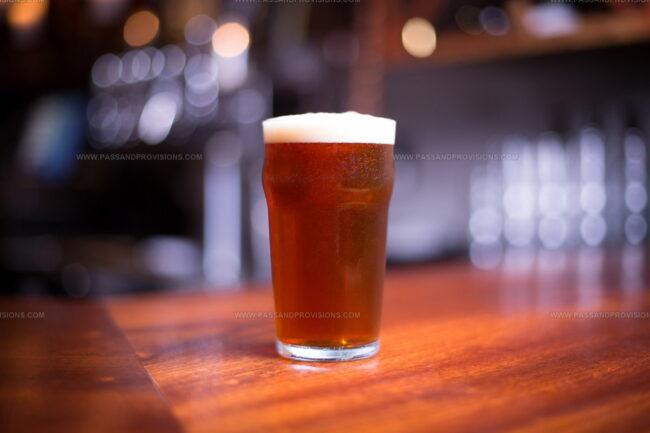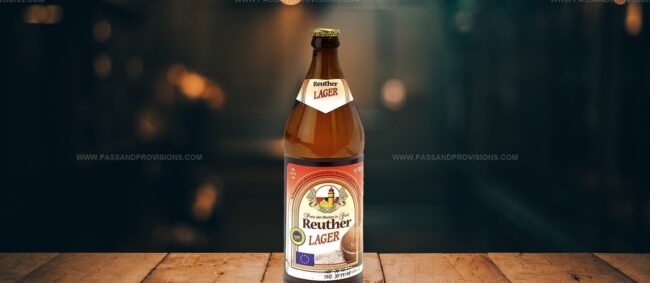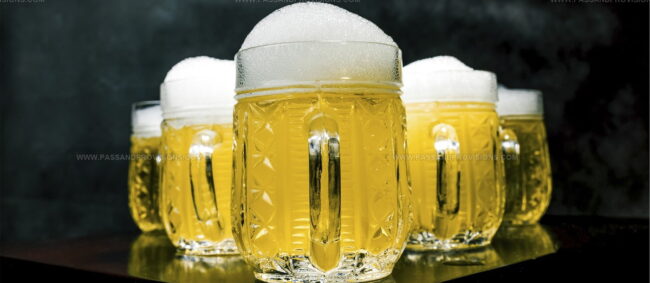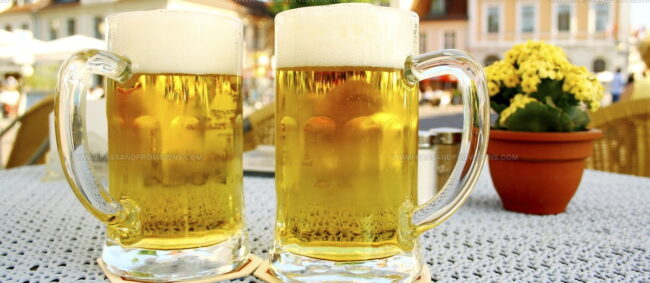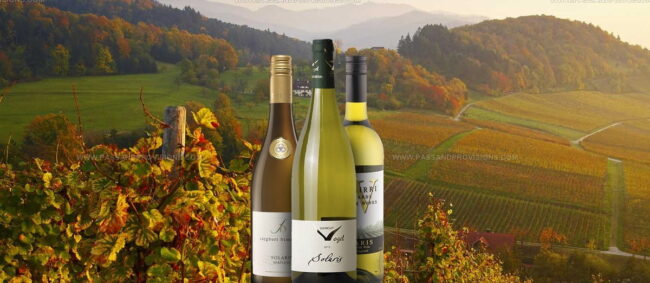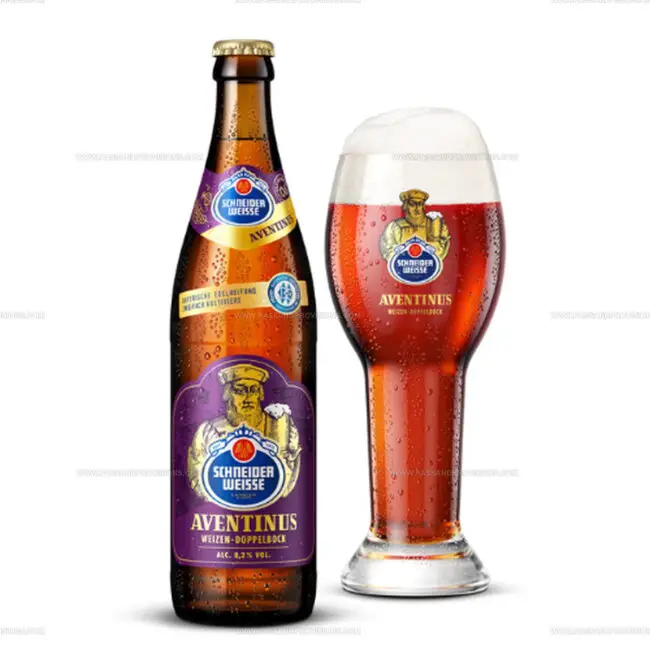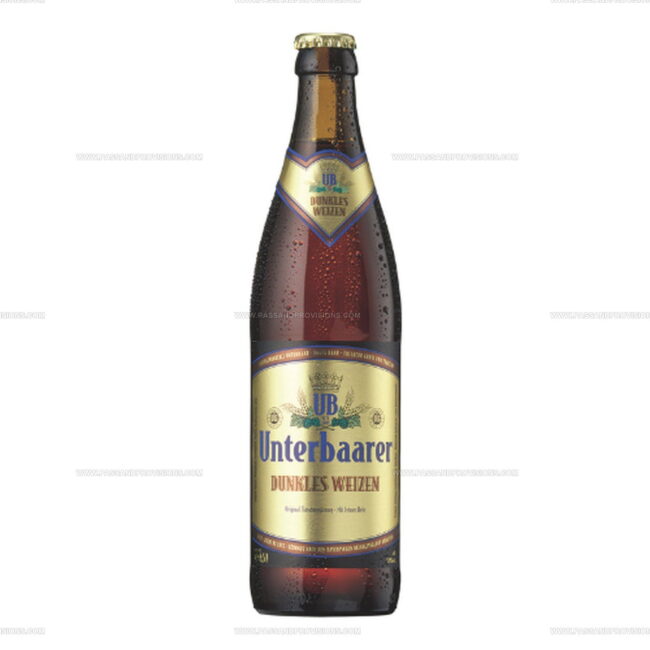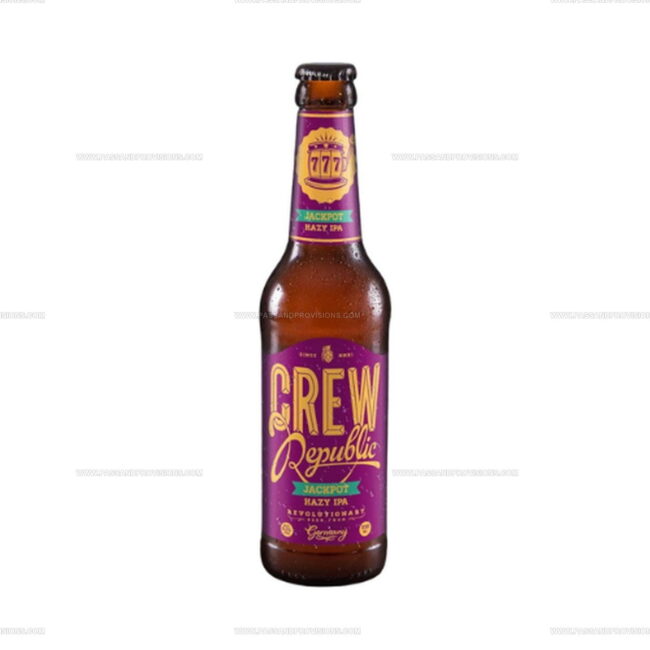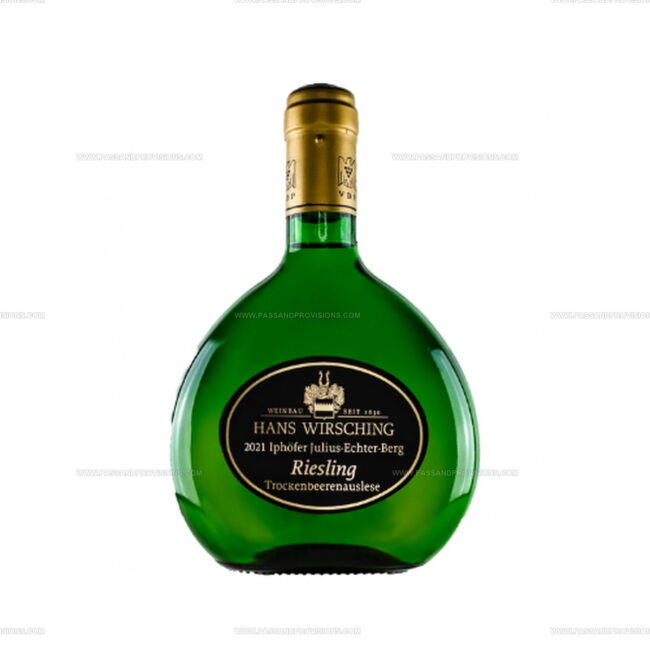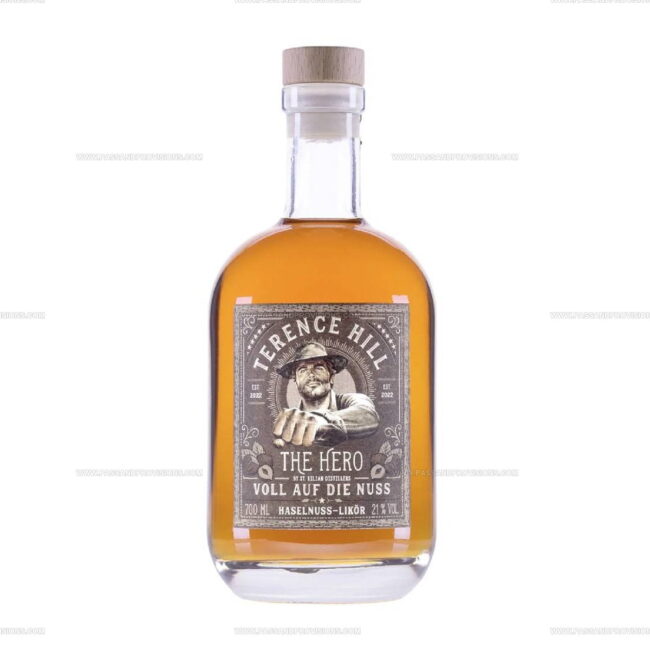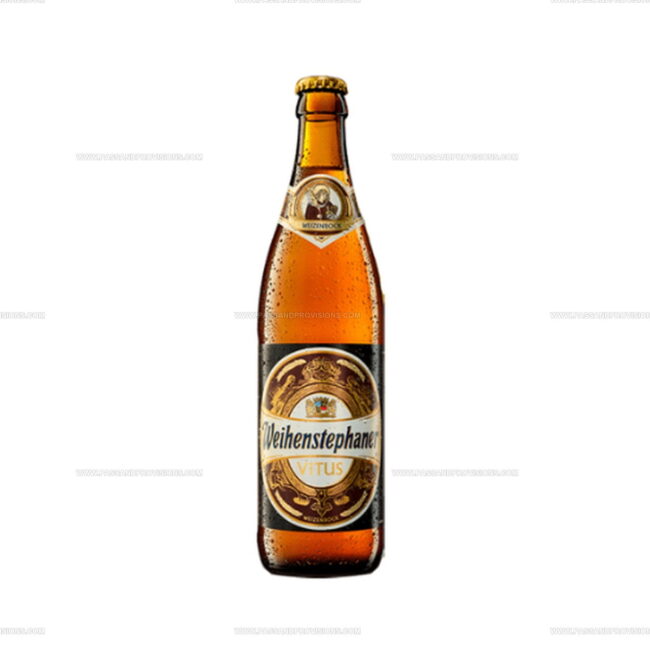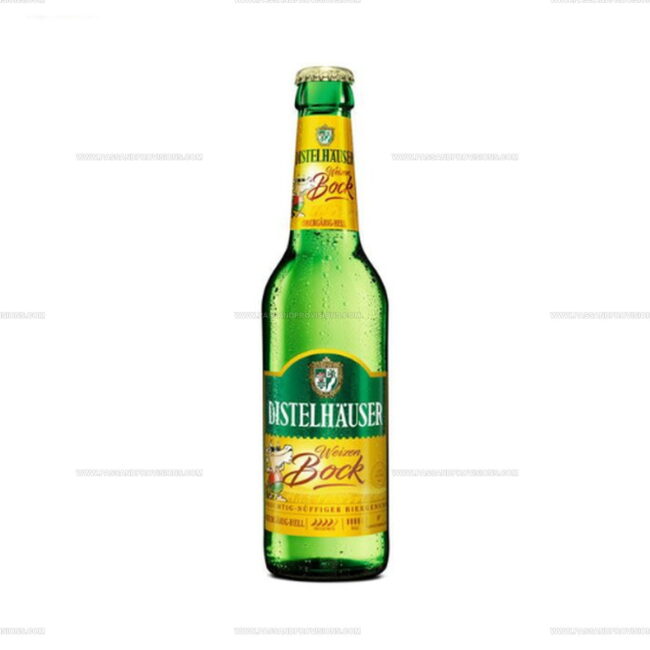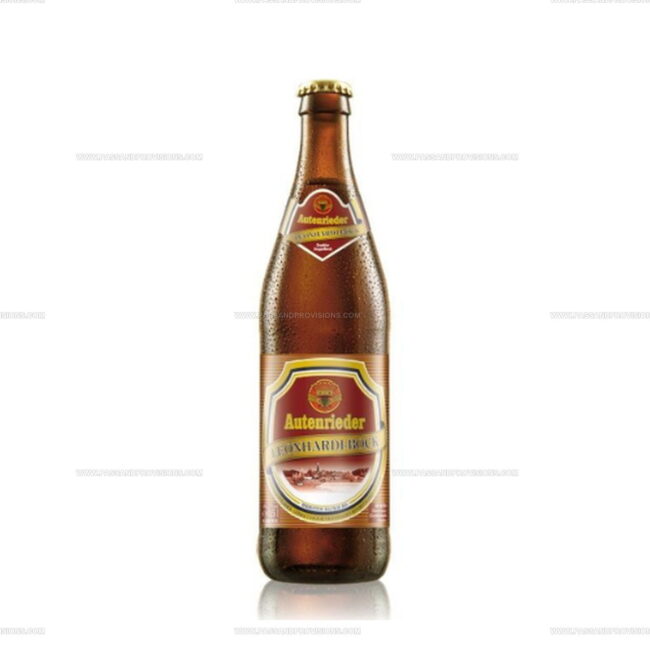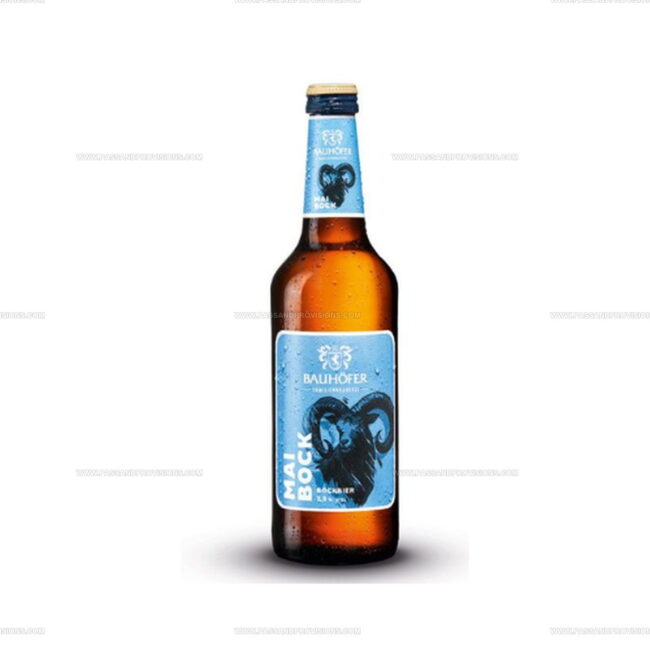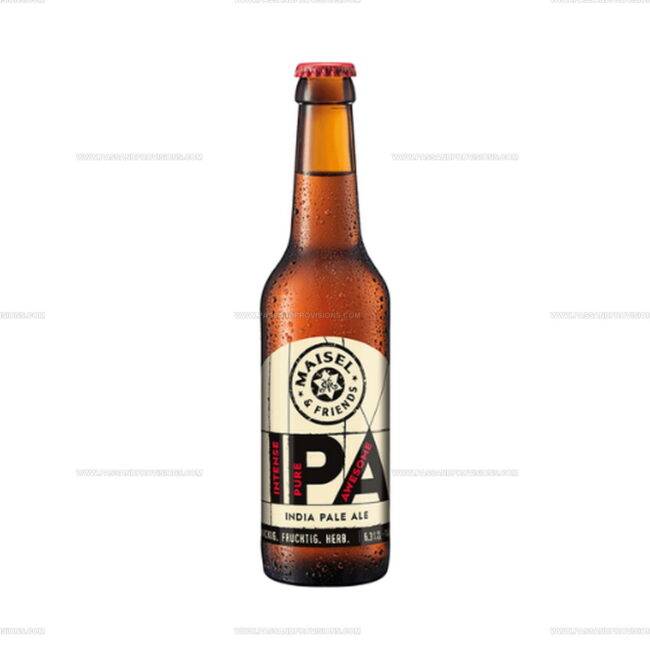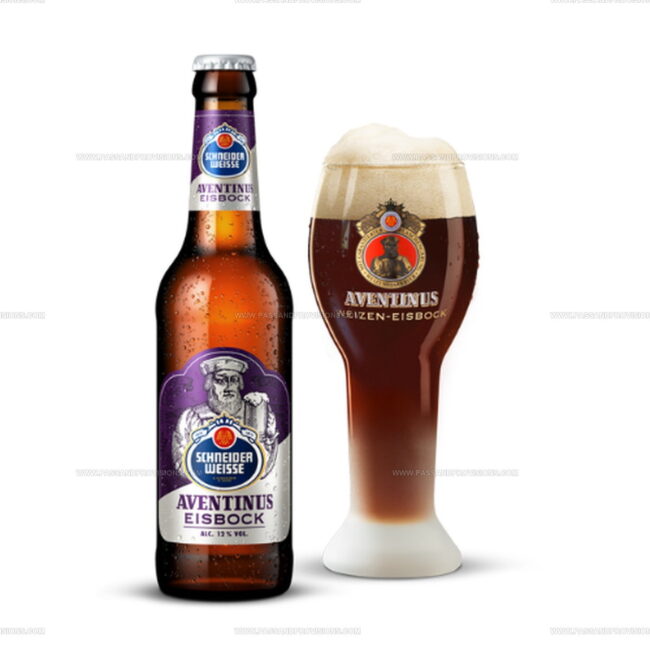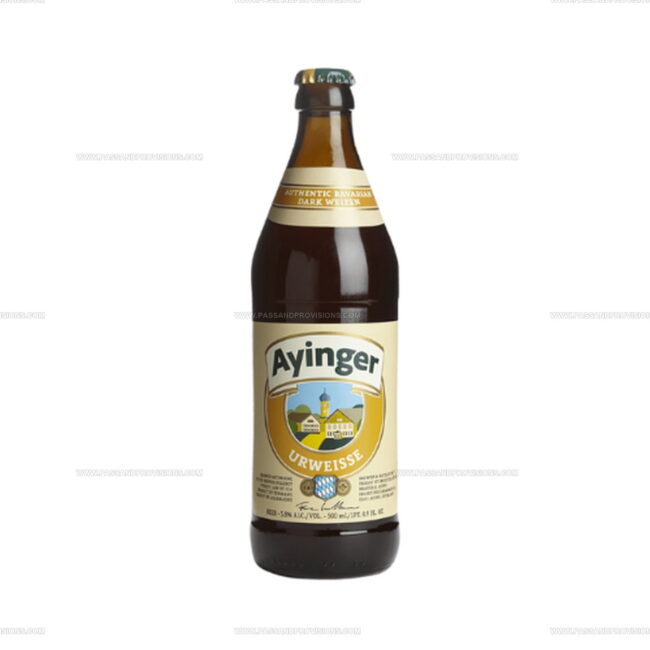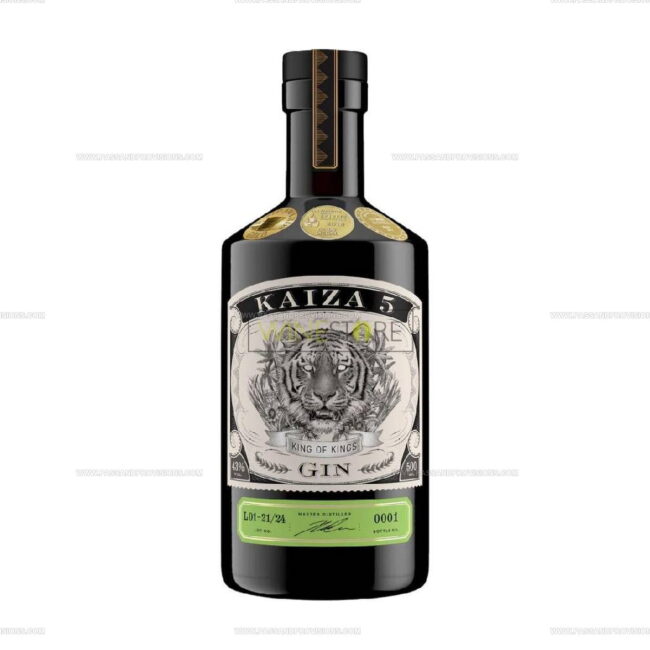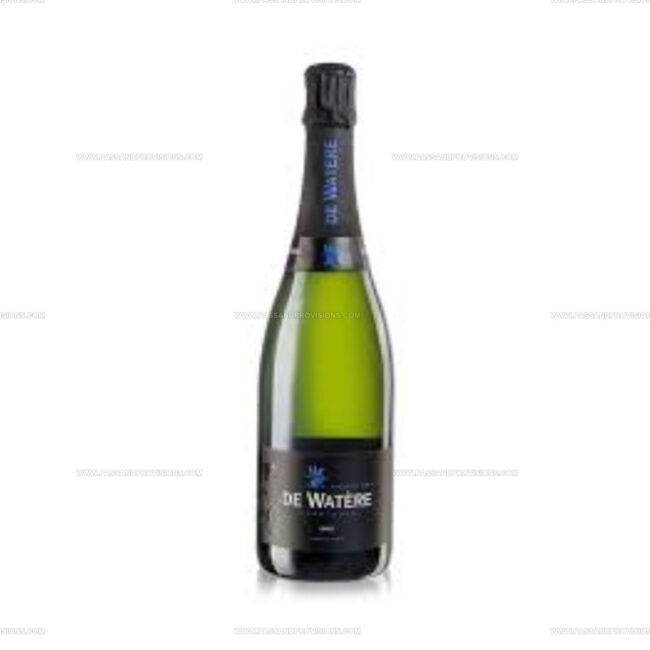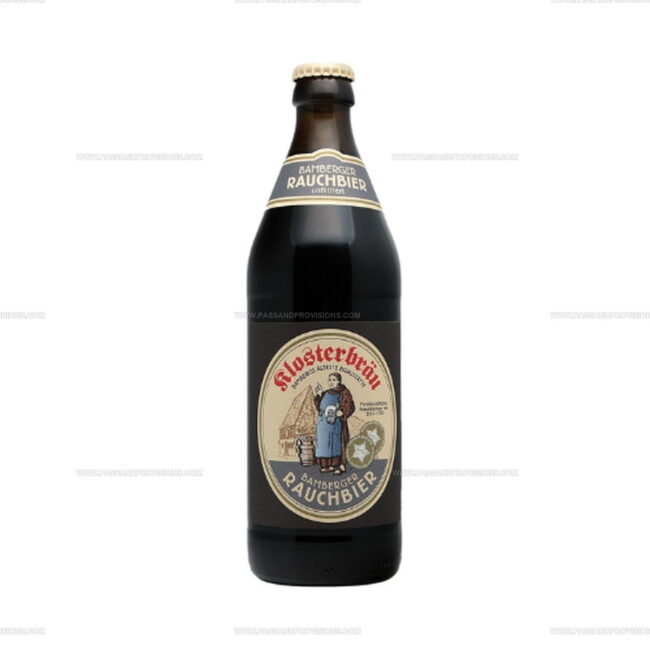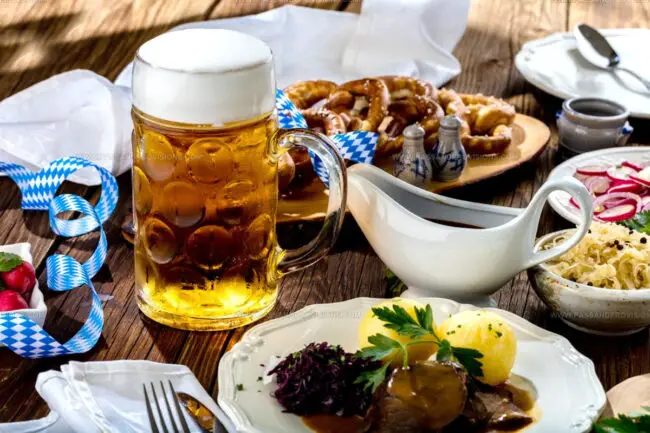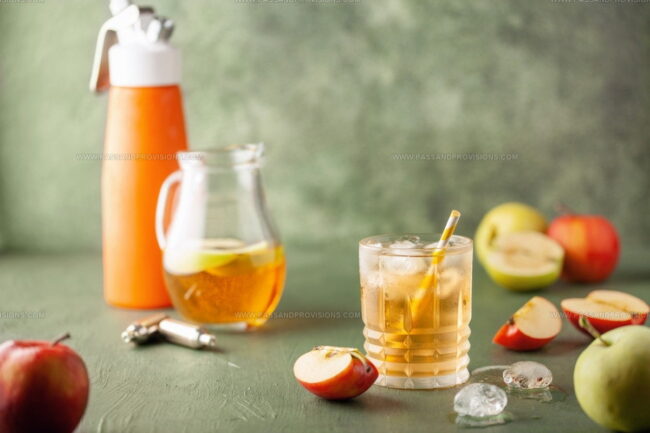44 Iconic Southern German Drinks That Define Tradition
Southern German drinks capture the rich cultural essence of a region known for its remarkable beverage craftsmanship.
Brewing traditions run deep in these alpine landscapes, where local communities take immense pride in their liquid artistry.
Passionate artisans have perfected techniques passed through generations, creating unique flavor profiles that tantalize the palate.
Regional ingredients and time-honored methods contribute to the distinctive character of these libations.
From mountain valleys to charming village taverns, beverages reflect the spirit of southern German hospitality.
Intricate brewing processes and carefully guarded recipes showcase the meticulous nature of local drink makers.
Connoisseurs and casual sippers alike find something extraordinary in these remarkable regional concoctions.
Here are 24 signature Southern German drinks that will transport you to a world of flavor:
Southern German Beverage Types That Invite Celebration
Southern Germany pours everything from crisp beers to sweet fruit brandies. Raise your glass and enjoy drinks that bring people together for good times.
Weissbier
Weissbier is a classic Bavarian wheat ale renowned for its signature cloudy appearance and creamy, mousse-like foam resulting from a high wheat malt content.
German brewing regulations mandate at least 50% malted wheat, though most brewers exceed this requirement for optimal flavor.
Distinctive yeast strains impart unique aromatic notes of clove, banana, and occasional bubble gum characteristics.
Traditionally bottle-fermented, this practice has become less common in modern brewing.
Mild maltiness and subtle bitterness define its flavor profile.
Top-fermented brewing techniques contribute to its distinctive taste.
Weissbier typically appears cloudy due to suspended wheat proteins.
Wheat ale enthusiasts appreciate its complex yet refreshing nature.
Bayerisches Bier
Bavarian beer represents centuries of brewing excellence rooted in Germany's most prestigious brewing region.
Brewers follow strict 1516 Purity Law standards, ensuring each beer meets exceptional quality benchmarks through rigorous scientific testing.
Bavaria hosts nearly 600 breweries, producing over 20 million hectoliters annually with mostly locally-sourced ingredients.
Brewing traditions span multiple styles including Lager, Pils, Dunkel, Schwarzbier, Marzen, Bock, Doppelbock, and Weizenbier.
German brewing expertise shines through meticulous ingredient selection and generations of beer-making knowledge.
Diverse beer varieties reflect regional brewing techniques passed down through generations.
Scientific monitoring guarantees consistent taste and quality for beer enthusiasts worldwide.
Complex brewing methods preserve Bavaria's international beer reputation.
Munchner Bier
Munich beer represents centuries of brewing mastery through seven legendary breweries that produce 6 million hectoliters annually using traditional methods established by Munich Beer Purity Law of 1487.
These historic breweries - Augustiner, Hofbrau, Paulaner, Hacker-Pschorr, Lowenbrau, Spaten, and Franziskaner - continue producing exceptional beer without additives since the 19th century.
Industrial breweries gradually replaced artisanal operations, yet these seven maintain strict brewing standards.
Augustiner stands as the oldest brewery with deepest traditional roots.
Each brewery follows ancient brewing techniques passed through generations.
German beer culture remains committed to exceptional quality and natural ingredients.
Brewery production reflects Munich's dedication to preserving brewing heritage.
These breweries symbolize Bavaria's commitment to exceptional beer craftsmanship.
Helles
Helles is a golden German lager born in Munich during 1894 as Bavaria's elegant response to Czech pilsner brewing trends.
Munich brewers crafted this smooth beer to compete with emerging lighter beer styles while maintaining traditional brewing standards.
Traditional Helles balances gentle malt sweetness with light hop bitterness, creating a clean and refreshing drinking experience.
Bavarian brewers developed this medium-bodied beer to offer beer enthusiasts a crisp alternative to darker lager varieties.
Its pale golden color and soft profile distinguish Helles from other European lager styles.
Munich brewing techniques ensure a refined and dry taste that appeals to beer drinkers seeking subtle complexity.
Helles represents a careful brewing evolution that respects historical German beer traditions.
Beer lovers appreciate its straightforward yet sophisticated character that embodies Munich's brewing excellence.
Marzen
Marzen beers emerge as traditional Bavarian amber lagers with deep historical roots in German brewing culture.
German brewers developed these malty beverages during the 1800s to ensure smooth preservation through summer months before refrigeration existed.
Spaten brewery officially standardized Marzen in 1841, creating a benchmark for future brewers across Germany.
Named after March (März in German), these beers were originally brewed in spring and stored in cool cellars until autumn festivals.
Amber-colored with warm toasty malt characteristics, Marzen delivers a crisp hop profile and balanced dry finish.
Medium-bodied beers showcase gentle caramel undertones and clean brewing techniques.
Oktoberfest celebrations prominently feature Marzen as a signature beverage.
Austrian and German brewing traditions significantly influenced this distinctive beer style.
Oktoberfestbier
Oktoberfestbier represents Munich's brewing excellence, brewed exclusively by six historic breweries for the world's largest beer festival.
German brewing traditions define this smooth, malty lager with a light hop profile and alcohol content between 5.5 to 6.2% ABV.
Augustiner, Hacker-Pschorr, Hofbrau, Lowenbrau, Paulaner, and Spaten craft these special beers under strict Bavarian Beer Purity Law guidelines established in 1487.
Only breweries within Munich can produce authentic Oktoberfestbier, which closely resembles the traditional Marzen beer style.
Festival attendees enjoy these golden-hued lagers in massive steins during the annual celebration.
Munich's brewing heritage shines through each carefully crafted beer.
Generations of brewing expertise contribute to its distinctive character.
Beer enthusiasts worldwide recognize Oktoberfestbier as a pinnacle of German brewing tradition.
Dunkel
Dunkel represents a rich German dark lager originating in Bavaria with a signature copper to dark brown color derived from Munich malt.
Munich brewers craft this smooth, medium-bodied beer through careful fermentation techniques that produce subtle caramel and toasty flavors.
Subtle hop characteristics complement its sweet undertones without overwhelming the palate.
Nutty and toffee aromas enhance its complex profile.
Each sip delivers a balanced drinking experience characteristic of traditional Bavarian brewing methods.
German beer enthusiasts prize this style for its mellow drinkability.
Moderate alcohol content makes dunkel an approachable yet sophisticated beer selection.
Its deep color and nuanced flavor reflect centuries of German brewing expertise.
Doppelbock
Doppelbock represents a robust German beer style originally crafted by Paulaner monks in Munich with exceptional malt-driven characteristics.
Munich brewers developed this stronger beer variation as a hearty alternative to traditional bock styles, translating "doppel" to mean double strength.
Medium-bodied beer ranges from golden to dark brown with rich, smooth textures that highlight complex malt profiles.
Sweet caramel undertones complement the beer's signature bread-like aroma and toasty background notes.
Subtle hop bitterness balances the intense maltiness, creating a complex drinking experience.
German brewing traditions shine through its deep flavor complexity and carefully crafted composition.
Monks initially brewed this style as a nutritious liquid sustenance during fasting periods.
Winter and early spring seasons remain ideal times for enjoying this substantial beer.
Weizenbock
Weizenbock represents a robust German beer bridging traditional wheat beer and strong bock styles with complex malt characteristics.
Schneider Weisse Brauhaus brewery first crafted this distinctive beer in 1907 as a balanced alternative to existing wheat and doppelbock varieties.
Munich brewers developed two primary versions: pale and dark interpretations with similar wheat beer foundations.
Darker versions showcase deeper malt profiles featuring rich toasted notes and nuanced fruit undertones like raisins and plums.
Wheat malts provide a signature smooth texture and creamy mouthfeel distinctive to the style.
German brewing traditions heavily influence its balanced composition and alcohol content typically ranging between 6.5% and 7.5% ABV.
Wheat and barley malts create a harmonious flavor profile that distinguishes weizenbock from other German beer styles.
Brewery innovation and regional preferences continue to shape this classic beer's evolving character.
Lager
Lagers represent a globally dominant beer style brewed with bottom-fermenting Saccharomyces pastorianus yeast, distinguishing them from ales through slower fermentation at cooler temperatures.
Beer enthusiasts recognize lagers for their crisp, clean flavor profile and remarkable diversity in color and alcohol content.
Brewers carefully select specific yeast strains to create distinctive variations across different regions and brewing traditions.
Modern lagers span multiple styles, ranging from light pilsners to rich dark beers with complex taste characteristics.
Germany and Czechoslovakia pioneered many classic lager techniques that continue influencing global brewing practices.
Brewing temperatures typically range between 45-55 degrees Fahrenheit, allowing unique flavor developments.
Each lager variety offers a different sensory experience through carefully balanced ingredients and fermentation methods.
International beer markets consistently demonstrate consumer preference for lager styles across numerous cultural contexts.
Dunkelweizen
Dunkelweizen represents a traditional German wheat beer blending dark and wheat ale characteristics with a copper to dark brown appearance.
Beer enthusiasts appreciate its distinctive banana and clove flavor profile emerging from specialized wheat yeast strains.
Medium-bodied and smooth, this ale offers complex malty undertones with subtle hints of caramel and vanilla.
German brewers craft these refreshing wheat beers using specific fermentation techniques that develop unique aromatic compounds.
Moderate carbonation enhances its drinkability and sensory experience.
Wheat malts contribute to its signature bready and grainy taste.
Moderate alcohol content typically ranges between 4.5% and 5.6%.
Bavaria remains the primary region producing authentic dunkelweizen styles.
Rauchbier
Rauchbier represents a distinctive German beer style originating in Bamberg, characterized by its unique smoky flavor from traditional malt-smoking techniques dating back to the 14th century.
Brewers in Franconia, particularly Schlenkerla and Spezial breweries, maintained the ancient method of drying malt over open flames despite technological advances in drum kilns during the 1880s.
Amber-colored and medium-bodied, these lagers deliver a complex profile blending smoky undertones with balanced hop bitterness.
German brewing traditions preserved this distinctive technique when most brewers switched to modern drying methods.
Beer enthusiasts appreciate its rich historical significance and distinctive taste profile.
Schlenkerla remains the most famous producer of this unique beer style.
Amber in color and medium-bodied, rauchbier offers a memorable sensory experience.
Modern craft brewers continue to experiment with and honor this traditional German brewing method.
Club-Mate
Club-Mate is a unique German soft drink derived from yerba mate extract, offering a distinctive caffeine boost with lower sugar levels compared to traditional sodas.
Geola Beverages first developed this distinctive beverage in Dietenhofen, Germany, targeting consumers seeking an alternative energy drink.
Mate extract provides the drink's signature herbal flavor and natural stimulant properties.
Each 100ml serving contains approximately 20 mg of caffeine, making it a moderate energy-enhancing beverage.
German consumers particularly appreciate its crisp taste and moderate sweetness.
Commercial production focuses on maintaining the natural essence of yerba mate leaves.
Manufacturing processes carefully balance flavor extraction and carbonation.
Regional popularity has grown steadily since its introduction, with increasing demand among health-conscious drinkers.
Swimming Pool
Swimming Pool is an eye-catching blue-tinted German cocktail blending vodka, white rum, pineapple juice, heavy cream, and coconut cream.
Charles Schumann pioneered this refreshing drink with a signature layered aesthetic.
Bartenders shake most ingredients with ice before pouring into a glass filled with crushed ice.
Blue Curacao provides the distinctive azure color when added sparingly as a final touch.
Blended variations exist for those preferring a smoother texture.
Pineapple wedges complete the tropical presentation.
Each sip offers a balanced mix of creamy and fruity flavors.
Tropical ingredients create a vacation-like drinking experience.
Eisbock
Eisbock is a potent German beer style renowned for its concentrated flavors achieved through freeze distillation, which involves partially freezing and removing water to intensify alcohol content and taste.
Originally crafted as a doppelbock, this brewing technique transforms an already strong beer into an even more powerful beverage typically ranging from 9 to 14% alcohol by volume.
Dark brown or reddish in color, eisbock presents complex malt-driven profiles with robust toasted and caramel notes that hint at dark fruit undertones.
German brewers carefully balance the intense characteristics to prevent harshness or overwhelming sweetness.
Each sip delivers a rich, concentrated experience that showcases traditional German brewing expertise.
Smooth yet strong, this beer represents a masterful demonstration of brewing precision and innovation.
Connoisseurs appreciate its depth and complexity, making eisbock a respected variant within bock beer traditions.
Maibock
Maibock is a festive Bavarian lager signaling spring's arrival with its golden to light amber appearance and robust 6-8% alcohol content.
German brewers craft this seasonal beer to welcome garden season and mark May's beginning with crisp, smooth malt flavors.
Bock style lagers feature grainy, lightly toasted aromas complemented by subtle herbal and spice notes.
Brewers distinguish Maibock from other Bock varieties through its drier profile and more pronounced hop characteristics.
Beer enthusiasts appreciate its medium body and clean taste that balances malty sweetness with subtle hop complexity.
Traditional brewing methods ensure each batch captures the essence of spring's renewal and celebration.
Originating in Bavaria, this beer style represents a cultural tradition of seasonal brewing excellence.
Germans consider Maibock a special springtime treat that bridges winter's end and summer's approach.
Kulmbacher Bier
Kulmbacher Bier embodies Bavaria's rich brewing heritage with its strict adherence to centuries-old German Beer Purity Law.
Monasteries pioneered this brewing tradition, with the first documented monastic brewery established in 1349, signaling a deep-rooted beer culture.
German brewers craft this beer exclusively using four natural ingredients: locally-sourced spring water, malt, hops, and yeast.
Brewers follow meticulous techniques passed down through generations, ensuring consistent quality and authentic flavor.
Regional breweries maintain strict standards that preserve the beer's original character.
Soft spring water from Bavarian mountains contributes to its smooth taste profile.
Historical records suggest communal brewing practices predated monastic establishments.
Each batch reflects generations of brewing expertise and regional pride.
Xuxu
XUXU liqueur dazzles with its pure strawberry essence, crafted from 66% fresh strawberry mash blended with vodka and a hint of lime.
German distillers create this vibrant spirit without artificial sugars, ensuring a natural fruit-forward profile.
Bartenders love mixing XUXU into cocktails and long drinks for an authentic strawberry kick.
Dessert makers frequently incorporate this liqueur into custards and ice creams for enhanced flavor.
Small batches guarantee premium quality and intense strawberry character.
Smooth vodka provides a clean backdrop for the fruit's natural sweetness.
Lime adds a subtle tang that balances the liqueur's rich fruitiness.
Versatile and refreshing, XUXU appeals to those seeking genuine fruit-driven spirits.
Kirschwasser
Kirschwasser is a potent clear brandy crafted through double distillation of fermented cherry mash, originating in Germany's Schwarzwald region where morello cherries traditionally grow.
German, Austrian, Swiss, and Alsatian distillers produce this distinctive spirit using regional cherry varieties.
Cherry pits crushed during processing contribute to its complex flavor profile, creating a pungent and mildly bitter-sweet taste.
Double distillation ensures a pure, intense spirit that captures the true essence of cherries.
Morello cherries remain the historical foundation of this traditional brandy.
Distillers carefully select and ferment ripe cherries to create the base mash.
Each batch reflects the unique characteristics of its cherry source.
Kirschwasser serves as both a standalone drink and a versatile ingredient in culinary preparations.
Roggenbier
Roggenbier is a rare Bavarian rye beer with deep historical roots dating back to pre-1516 German brewing traditions.
German brewers craft this distinctive beer using at least 50% malted rye, creating a unique beverage with a spicy and slightly fruity profile.
Dark and medium-bodied, roggenbier offers a complex taste experience with moderate bitterness and subtle malt sweetness.
Weizen yeast contributes tart nuances that enhance its character, making each sip intriguing.
Brewers almost lost this style after the German Beer Purity Law restricted brewing ingredients, but it experienced a revival in the 1980s.
Modern roggenbier typically maintains a light, dry finish with around 5% alcohol content.
Small German breweries now produce this style as a standard or seasonal offering.
Beer enthusiasts appreciate roggenbier for its rich historical significance and distinctive flavor profile.
Reuther Bier
Reuther Bier embodies Bavaria's most stringent brewing traditions, exclusively crafted in Reuth bei Erbendorf under strict regional regulations.
Schlo brewery produces four distinctive beer styles: Lagerbier, Schlo-Pils, Weibier, and Spezial, each reflecting unique characteristics and flavor profiles.
Artesian mineral water from the brewery's private spring forms the foundational ingredient for these exceptional brews.
Brewers follow the centuries-old Bavarian Beer Purity Law of 1516, ensuring uncompromised quality and authenticity.
Regional hops and malt contribute to the beer's distinct taste and character.
Each beer style varies in alcoholic strength and appearance, offering beer enthusiasts diverse drinking experiences.
German brewing precision and commitment to traditional methods define Reuther Bier's exceptional reputation.
Regional heritage and strict brewing standards make these beers a true representation of Bavarian brewing excellence.
Hofer Bier
Hof beer celebrates centuries of German brewing mastery through carefully crafted beverages produced with exceptional local ingredients and pristine soft water.
Regional brewers select premium grains and hops to create distinctive flavor profiles that reflect Bavaria's rich brewing heritage.
Brewing techniques passed down through generations ensure each beer maintains traditional quality standards.
Small-batch production allows meticulous attention to ingredient selection and fermentation processes.
Water sourced from nearby mountain springs contributes to the beer's smooth, clean taste.
Multiple beer styles emerge from Hof's brewing traditions, ranging from crisp lagers to robust dark ales.
Local breweries maintain strict quality control throughout production.
Regional brewing history in Hof stretches back to the 14th century, highlighting generations of brewing expertise.
Mainfranken Bier
Mainfranken Bieris a regional beer with deep historical roots, crafted exclusively in Lower Franconia's administrative boundaries since 1381.
Regional waters and local barley form the foundation of these traditional brews, ensuring exceptional quality and authentic flavor profiles.
German brewers meticulously follow centuries-old brewing techniques passed through generations.
Protected designation guarantees each beer meets strict regional standards.
Breweries in this area carefully select ingredients from nearby farms and fields.
Distinctive brewing methods reflect generations of expertise and commitment to brewing excellence.
Mild hop characteristics and smooth malt undertones distinguish these beers from other German regional varieties.
Local beer enthusiasts celebrate Mainfranken Bieris as a testament to Bavaria's rich brewing heritage.
Solaris
Solaris grapes produce light, refreshing white wines uniquely designed for cool northern European climates.
German wine researchers developed this distinctive grape variety in 1975 by carefully crossing Merzling, Zarya Severa, and Muscat Ottonel grapes.
Wine enthusiasts enjoy its crisp character and remarkable adaptability across countries like Germany, Poland, Denmark, and England.
Small vineyards throughout northern Europe cultivate these resilient grapes that thrive in challenging growing conditions.
Dry Solaris wines offer elegant fruity profiles featuring pear, peach, and citrus notes.
Subtle honey undertones complement its delicate aromatic characteristics.
Winemakers occasionally transform Solaris grapes into sweet dessert wines.
These versatile grapes represent an innovative solution for regions with shorter growing seasons.
Southern German Beverage Producers Making Tradition New
Old-world breweries and modern distilleries put their stamp on the region’s best drinks. Get to know the makers behind your next favorite sip.
Schneider Weisse G. Schneider & Sohn
Schneider Weisse is a legendary Bavarian wheat beer crafted by a historic German brewery that has mastered wheat beer production since 1872.
Georg Schneider I established this family-owned brewery in Kelheim, Bavaria, creating a beer that would become internationally recognized for exceptional quality.
German brewing traditions flow through every aspect of its production, with generations of expertise guiding its creation.
Wheat malts deliver a distinctive golden color and complex flavor profile that sets this beer apart from other German wheat beers.
Schneider Weisse maintains traditional brewing techniques while incorporating modern innovations that respect its rich heritage.
Balanced notes of banana, clove, and subtle spices characterize its unique taste experience.
Fermentation processes carefully developed over decades contribute to its smooth, rich character.
Passionate brewers continue to honor the original recipe, ensuring each batch represents the highest standards of Bavarian brewing excellence.
Schlossbrauerei Unterbaar
Schlossbrauerei Unterbaar brews exceptional German beers steeped in centuries-old Swabian brewing traditions, nestled in Bavaria's picturesque Baar region.
Family-owned since its founding, this historic brewery specializes in crafting premium lagers and wheat beers using carefully selected local ingredients.
Bavarian brewing expertise shines through each meticulously produced beer, reflecting generations of technical skill and regional brewing knowledge.
Seasonal specialty brews complement their standard beer lineup, showcasing creative brewing techniques and regional flavor profiles.
Regional ingredients from nearby Swabian farms contribute to the authentic taste and quality of their beer production.
Traditional brewing methods remain central to their manufacturing process, ensuring consistent and high-quality beer experiences.
Lagers and wheat beers form the core of their product range, appealing to beer enthusiasts seeking genuine German brewing traditions.
Small-batch production maintains the brewery's commitment to artisanal beer crafting and regional heritage.
Crew Republic Brewery
Crew Republic crafts innovative craft beers in Bavaria by sourcing premium global hops and experimenting with unique taste profiles.
Their brewing philosophy challenges traditional German beer standards by creating bold, unconventional brews.
Passionate brewers select exceptional hop varieties from international sources to develop distinctive flavor combinations.
Small-batch production ensures high-quality, experimental beer styles that stand out in Bavaria's competitive brewing landscape.
Each beer represents their commitment to pushing brewing boundaries and breaking away from standard brewing techniques.
Independent craft brewing allows them maximum creativity in developing new taste experiences.
Their approach attracts beer enthusiasts seeking authentic, unexpected flavor journeys.
Craft beer lovers appreciate Crew Republic's dedication to innovation and quality brewing.
Weingut Hans Wirsching
Hans Wirsching wine estate represents a generational winemaking legacy rooted in Franconia's rich viticultural traditions.
Family members have cultivated grapes for centuries, currently led by Andrea Wirsching's expert management.
Located in Iphofen, the estate spans 90 hectares dedicated to producing exceptional dry white wines.
Silvaner, Riesling, Scheurebe, and white Pinot varieties dominate their specialized wine portfolio.
Each grape variety reflects the region's unique terroir and meticulous cultivation practices.
Wine production combines generations of knowledge with modern winemaking techniques.
Andrea continues her family's commitment to quality and innovation in wine production.
Regional landscapes and centuries of expertise shape every bottle crafted at this distinguished estate.
St. Kilian Distillers
St.
Kilian Distillers pioneered German single malt whisky production in Bavaria's Rudenau region through innovative craft brewing techniques.
German whisky enthusiasts recognize this unique distillery as a groundbreaking enterprise established in 2012 within a transformed textile factory.
Named after St.
Kilian, an Irish-Scottish missionary who previously worked in Wurzburg, the distillery has quickly gained international recognition.
Their exceptional "White Dog" whisky claimed world's best award in 2018, signaling remarkable quality and craftsmanship.
Musicians and celebrities collaborate with St.
Kilian to create special edition whiskies that showcase regional creativity.
German brewing traditions merge with contemporary whisky-making methods at their sophisticated facility.
Sophisticated equipment and passionate brewmasters drive their commitment to exceptional single malt production.
St.
Kilian continues expanding Germany's reputation in global whisky markets through meticulous brewing techniques and creative partnerships.
Bayerische Staatsbrauerei Weihenstephan
Bayerische Staatsbrauerei Weihenstephan represents beer brewing excellence with a legacy spanning centuries as the world's oldest continuously operating brewery.
Located on historic Weihenstephan Hill in Freising, Bavaria, Germany, this remarkable brewery maintains deep roots in traditional beer production.
German beer enthusiasts recognize Weihenstephan for its strict adherence to the 1516 Reinheitsgebot purity law, which governs authentic beer ingredients.
Monks first established brewing operations on this site during medieval times, creating a profound cultural connection to beer craftsmanship.
Generations of brewmasters have perfected techniques passed down through centuries of brewing knowledge.
Weihenstephan produces multiple beer styles that showcase Bavaria's brewing mastery.
International beer competitions frequently honor their exceptional brewing standards.
Modern brewery operations continue to blend historical traditions with advanced brewing technologies.
Distelhauser Brauerei Ernst Bauer
Distelhauser Brauerei Ernst Bauer stands as a historic German brewery deeply rooted in Baden-Württemberg's beer-making heritage, crafting exceptional brews since 1811.
Located in Distelhausen village near Tauberbischofsheim, this family-owned establishment maintains generations of brewing expertise and commitment to quality.
Ernst Bauer's brewery specializes in traditional German beer styles, emphasizing careful ingredient selection and time-honored brewing techniques.
Regional beer enthusiasts recognize Distelhauser for its consistent production of premium lagers and ales that reflect authentic German brewing traditions.
Small-batch production ensures meticulous attention to each beer's flavor profile and brewing process.
Regional distribution networks help spread their reputation across Baden-Württemberg and neighboring areas.
Sustainable practices and traditional methods distinguish their brewing approach from larger commercial breweries.
Modern equipment combined with generational knowledge allows Distelhauser to create distinctive, high-quality beers that honor their rich brewing legacy.
Schlossbrauerei Autenried
Schlossbrauerei Autenried represents a historic Bavarian brewery nestled in Germany's Swabia region, producing exceptional traditional German beers with centuries-old brewing techniques.
Located within the historic Autenried Castle dating back to the 18th century, this brewery crafts high-quality beer using carefully selected local ingredients and time-honored fermentation methods.
Its beer portfolio includes classic lagers, pale ales, and distinctive Bavarian specialties that reflect the rich brewing heritage of southern Germany.
Situated near Gunzburg, Schlossbrauerei Autenried maintains a strong connection to regional brewing traditions.
Beer enthusiasts appreciate the brewery's commitment to authentic production processes.
Traditional recipes and meticulous brewing standards define each beer's unique character.
Local ingredients contribute to the distinctive flavor profiles of their beverages.
Generations of brewing expertise shine through in every carefully crafted beer from this historic castle brewery.
Familienbrauerei Bauhofer
Bauhofer Family Brewery represents generations of German beer-making excellence nestled in Baden-Wurttemberg's Ortenau region.
Founded in 1852, this family-owned brewery blends traditional brewing methods with contemporary techniques.
Generations of Bauhofer brewers have carefully preserved their unique beer-crafting approach in Renchen-Ulm.
Their commitment to quality and local craftsmanship distinguishes them from larger commercial breweries.
Small-batch production ensures each beer reflects authentic regional brewing standards.
Specialized equipment and time-honored recipes contribute to their distinctive beer profile.
Community connections remain central to their brewing philosophy.
Local partnerships and generational knowledge continue to drive their brewing success.
Brauerei Gebruder Maisel
Maisel's Weisse beer represents Bavaria's rich brewing heritage, crafted by Maisel Brothers Brewery since 1887 in Bayreuth, Germany.
Generations of family expertise have transformed this wheat beer into a celebrated German brewing masterpiece.
Wheat malt and traditional fermentation techniques create its distinctive cloudy appearance and complex flavor profile.
Brewing experts recognize its unique yeast strain that produces a signature banana and clove aroma.
Bavarian brewing regulations ensure strict quality standards for every batch produced.
Microbiological precision and generational knowledge contribute to its exceptional taste.
International beer competitions have repeatedly awarded this wheat beer for its superior quality.
German beer enthusiasts consider Maisel's Weisse a benchmark for authentic wheat beer brewing traditions.
Southern German Beverages for Every Celebration
From lively lagers to herb-infused spirits, southern Germany pours with heart and history. Share a glass and toast to tradition, friends, and flavor.
Schneider Weisse G. Schneider & Sohn Tap6 Aventinus
Mein Aventinus is Bavaria's legendary wheat beer that delivers a robust dark ruby experience with intense complexity.
Brewed since 1907, this Doppelbock wheat beer represents an extraordinary German brewing tradition.
Its strong body and sweet malty aroma create a profound drinking sensation perfect for winter evenings.
Intensive and fiery, the beer warms you from the inside with a well-balanced flavor profile.
Aventinus pairs beautifully with rustic dishes, dark roasted meats, and sweet desserts.
Its deep ruby color signals a rich brewing heritage from Bavaria.
Wheat beer enthusiasts treasure this vintage brew for its remarkable depth.
Generations of beer lovers have celebrated this masterful German brewing achievement.
Schlossbrauerei Unterbaar Unterbaarer Dunkles Weizen
Unterbaarer Dunkles Weizen represents Bavaria's deep brewing heritage, delivering a complex dark wheat beer with intense roasted malt characteristics.
German brewers craft this exceptional beer using traditional wheat brewing techniques from Schlossbrauerei Unterbaar.
Smooth and rich, the beer balances dark roasted flavors with classic wheat beer smoothness.
Dark amber in color, it presents subtle hints of caramel and toasted bread notes.
Munich wheat malts contribute depth and complexity to its profile.
Moderate alcohol content ranges between 5-6%.
Schwarzbier and hefeweizen techniques influence its brewing process.
Bavarian beer enthusiasts consider this brew a regional specialty with nuanced flavor elements.
Schneider Weisse G. Schneider & Sohn Tap9 Aventinus Eisbock
Eisbock is a powerful German beer crafted through a unique freezing process that concentrates its flavors and alcohol content, creating an intense dark brew with deep mahogany coloration.
Originating in Bavaria, this specialty beer undergoes careful maturation where water is partially removed through freezing, leaving behind a rich, concentrated liquid.
Spicy flavor notes of plum, banana, and clove dance across the palate, complemented by subtle hints of bitter almond and marzipan.
Brewers carefully select premium ingredients to enhance its complex taste profile.
Traditionally served in a balloon glass, eisbock offers a sensuous drinking experience with an elegant yet robust body.
Its high alcohol content makes it an excellent digestif, perfect for pairing with desserts like dark chocolate, tiramisu, or aged parmesan.
Beer enthusiasts prize this style for its complexity and depth of flavor.
Winter months especially highlight this remarkable German brewing technique.
Brauerei Aying Franz Inselkammer Ayinger Urweisse
Orval Trappist beer radiates a complex amber profile with extraordinary depth from Belgian monastic brewing traditions.
Monks craft this unique ale through specialized fermentation techniques that create multilayered flavor experiences.
Fruity notes of apple and soft spice dance across its dry palate, surprising beer enthusiasts with intricate taste dimensions.
Belgian brewing expertise transforms simple ingredients into an exceptional beverage.
Subtle clove undertones emerge in its refined finish, distinguishing Orval from standard beer styles.
Monks produce this beer using wild yeasts and careful aging processes.
Belgian Trappist monasteries have brewed this distinctive ale since 1931.
International beer connoisseurs consider Orval a benchmark of sophisticated brewing craft.
Kaiza 5 Gin
Kaiza 5 Gin represents South Africa's adventurous spirit through a meticulously crafted small-batch spirit distilled with precision and passion.
Exotic African botanical ingredients elevate this premium gin's complex flavor profile, blending traditional juniper and coriander with unique local plant essences.
Its carefully balanced 43% alcohol content creates a smooth, sophisticated drinking experience.
Vibrant citrus undertones complement the gin's rich botanical foundation, offering sophisticated palate complexity.
Each 500 ml bottle showcases elegant design that mirrors the brand's commitment to quality.
Distilled with exceptional attention to detail, this gin celebrates South African botanical diversity.
Cocktail enthusiasts appreciate its versatile character and refined taste.
Gin lovers will discover a remarkable spirit that tells a compelling story of African craftsmanship.
De Watere De Watere Premier Cru Prestige Brut Blanc
Premier Cru Brut Blanc Champagne represents a sophisticated French sparkling wine celebrated for its complex sensory profile and elegant character.
This exceptional champagne captures the essence of French vineyards with its crisp apple and juicy plum aromatics that dance across the palate.
Subtle cinnamon undertones and exotic fruit notes enhance its sophisticated flavor landscape.
Garden-fresh characteristics blend seamlessly with an earthy, vegetal complexity that distinguishes this premium wine.
Award-winning techniques ensure each sip delivers a nuanced tasting experience.
Mature grapes from premier vineyards contribute to its refined structure and depth.
French winemaking traditions shine through its carefully balanced composition.
Sophisticated wine enthusiasts appreciate its layered and intricate sensory journey.
Schlossbrauerei Autenried Autenrieder Leonhardi Bock
Leonhardi Bock beer stands out as a robust Bavarian classic with deep amber hues and exceptional malty complexity.
German brewers craft this powerful beer using traditional methods that highlight its rich 18.5% original wort strength.
Dark amber coloration signals intense flavor profiles that beer enthusiasts deeply respect.
Munich brewing traditions deeply influence its smooth drinking experience.
Balanced malted characteristics make this brew simultaneously strong and approachable.
Carefully selected ingredients contribute to its distinctive taste.
Beer lovers recognize its smooth texture and complex undertones.
Traditional brewing techniques ensure consistent quality in every carefully produced batch.
Familienbrauerei Bauhofer Bauhofer Maibock
Bock beer emerges as a robust German lager with intense malty characteristics and higher alcohol content.
German brewers crafted this traditional beer style in Bavaria during medieval times as a strong, nourishing brew.
Monasteries originally produced bock beer as a liquid bread substitute during Lenten fasting periods.
Brewing processes involve using darker malts which create rich caramel and toasted bread flavors.
Alcohol levels typically range between 6% to 7.5%, making it significantly stronger than standard lagers.
Winter and spring seasons traditionally highlight bock beer consumption.
Historical roots trace back to Einbeck city in northern Germany.
Monks and brewmasters carefully developed this substantial beer style over centuries of brewing expertise.
Klosterbrau Bamberg Bamberger Rauchbier
Klosterbrau Rauchbier embodies Germany's ancient smoking beer tradition with its deep black color and distinctive beige foam.
Brewers craft this unique beer by drying malts over beechwood, infusing a powerful smoky essence that defines its character.
Rich aromas of smoked ham, dark chocolate, and roasted caramel create a complex flavor profile that intrigues beer enthusiasts.
Hallertau aroma hops balance the intense smokiness with subtle fruity undertones.
Each sip reveals layers of liquorice and caramel notes that dance across the palate.
Traditional brewing methods from Bamberg ensure an authentic taste experience.
This specialty beer represents a centuries-old German brewing technique.
Connoisseurs treasure Rauchbier as a remarkable example of regional brewing craftsmanship.
Crew Republic Brewery Crew Republic Jackpot
New England IPA bursts with tropical fruit flavors and intense hop aromas, creating a cloudy orange beer that delivers a refreshing drinking experience.
Brewers craft this style by using massive amounts of late-stage hops to maximize fruity character without harsh bitterness.
Passion fruit and citrus notes dominate the flavor profile, giving the beer a juicy and smooth texture.
Low bitterness allows fruit-forward qualities to shine through each sip.
Light body and balanced acidity make this beer perfect for hot summer days.
Wheat and oats contribute to its signature hazy appearance.
Hop varieties like Citra and Mosaic amplify the tropical fruit essence.
Craft beer enthusiasts prize this style for its innovative approach to traditional India pale ale brewing techniques.
Is Beer More Culturally Dominant in Southern Germany Than Wine or Spirits?
Yes, beer holds a particularly dominant cultural position in Southern Germany, especially in Bavaria and parts of Baden-Württemberg.
The region is world-famous for its beer traditions, including iconic styles like Märzen, Helles, and Weißbier, and for hosting large-scale beer festivals such as Oktoberfest.
Brewing has deep historical roots here, with centuries-old breweries and beer gardens playing central roles in social life.
While wine is important - especially in areas like the Württemberg wine region - and spirits like schnapps are also valued, beer is often seen as the quintessential Southern German drink, closely tied to local identity and customs.
Are Non-Alcoholic Beverages Just as Culturally Significant as Beer in Some Southern German Communities?
In some Southern German communities, non-alcoholic beverages do carry significant cultural weight alongside beer, particularly in family settings, during festivals, or for those who abstain from alcohol.
Traditional drinks like Apfelschorle (apple juice mixed with sparkling water), herbal teas, and regional fruit juices are popular and widely enjoyed.
They provide refreshing alternatives and are often consumed in social contexts where beer is also present, reflecting a balanced cultural appreciation for both alcoholic and non-alcoholic refreshments.

